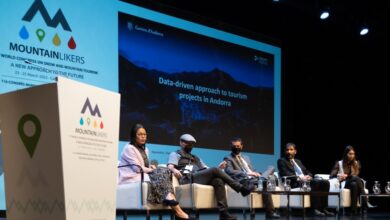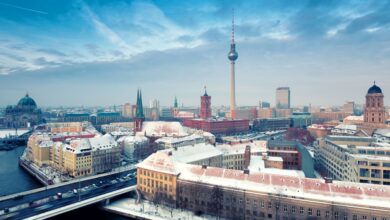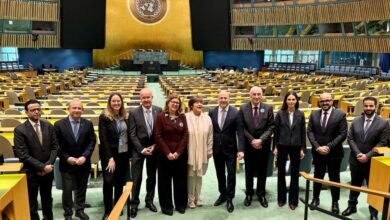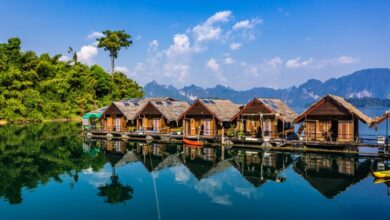‘We can’t just recycle or turn the lights off, we need a systems change’
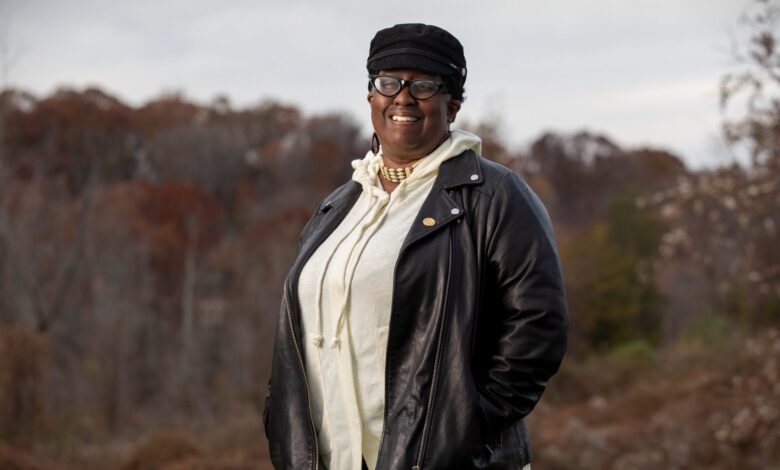
It was while volunteering as a special education teacher in the Peace Corps in Jamaica in the early 1990s that Jacqueline Patterson started to realise that in order to tackle inequities in society, communities need to be in the driving seat.
“I saw grinding poverty in a country that had so much abundance, and how the commoditisation of its natural resources benefited the wealthy few,” she says.
“I saw that we needed people changing the systems so interventions such as social services weren’t needed in the first place. I started to read books about how development can be well-meaning, but that without systems change we are enabling the perpetuation of poverty and these disparities. Models of helpfulness don’t change people’s material conditions.”
From there, Patterson moved towards modes of working that focused on how to change the system. Following senior roles at various charities, including ActionAid International where she advocated for gender justice, she joined the National Association for the Advancement of Colored People in 2009 and spent 11 years working on civil rights within its climate justice programme.
Limiting factors
While there, she spearheaded reports such as Fossil Fueled Foolery, which explored how the fossil fuel industry acts as a puppet master to many politicians and policies. By this time she had realised the limits of fighting for equal rights under “a fundamentally flawed legislative, judicial and regulatory system”.
“As I was doing work with the environment and climate justice, I quickly came to embrace this notion of ‘a just transition’ – that we need to transition our economy from an extractive economy into a regenerative economy,” Patterson says. “So, we need to move away from a capitalist economy, which is predicated on the notion of there being winners and losers.”
As a result, she founded the Chisholm Legacy Project, a resource hub for Black frontline climate justice leadership, in 2021. The organisation has four areas of focus: working with frontline communities so they are in the driver’s seat of creating change; supporting climate justice movements to better centre racial justice and Black liberation (and vice versa); helping organisations understand the intersection of racial justice and climate justice; and supporting the wellbeing of Black women.
“We unapologetically place ‘a just transition’ at the cornerstone of all the work we do,” Patterson says. “We use story-based strategies to elevate the voices of communities on the frontlines of racial injustice and climate change. Stories help people get the racial elements of environmental justice. We can’t just recycle or turn the lights off, we need a systems change.”
Her wealth of experience and knowledge is now supporting the international museum sector, following her appointment as trustee of the Climate Museum in New York earlier this year, although in reality she was involved with the organisation ever since it launched it 2017.
“I’ve always been a fan of integrating culture into my activism and political education work – for example, using film to allow people to tell their own stories. And we have a principle of democratic organising, which means letting the people speak for themselves. I can’t carry the community in my pocket but being able to carry a flash drive that contains people telling their own stories is second best.”
As a trustee, Patterson wants to support the Climate Museum’s mission to be in service to frontline communities, in particular empowering them to tell their stories. One way the Chisholm Legacy Project does this is through a new Black climate justice Toastmasters network of peer-supported public speaking clubs, which recognises that not everyone has the confidence to speak out publicly.
One message that is key for Patterson, whether as part of her work as a museum trustee or the Chisholm Legacy Trust, is for people to see that “a just transition” benefits everyone. “It’s the rock at the core of our society that needs to be dealt with for us all to be well and for us all to thrive,” she says.
So, what does Patterson see as the important areas of focus for climate justice? First, she believes much more work is needed to educate people about the changes that need to happen.
“The racial awakening that happened after George Floyd’s murder in 2020 mean that more people got a sense of the extreme disparities, but I don’t think we are close to understanding the pervasiveness of those disparities,” she says.
“We believe that you need to be the change you want to see in the world. Our work supports communities to take the action they need – and as we see the proliferation of people making those changes, then we are effectively beginning to change policy by building new systems.”
Alongside community initiatives, there is also the need for direct campaigning for policy change and “shifting the narrative” towards and understanding of “a just transition”.
“And then there is activism,” Patterson adds, “whether that’s picketing in front of the American Petroleum Institute or the Occupy movement. And we’re there for it all because we think it’s going to take it all to make the mammoth systems change that is necessary.”
Patterson works across the board with a lot of organisations campaigning to make this change happen. With so many commitments, how does she achieve work-life balance and ensure she isn’t spread too thin?
“I ask myself ‘what would happen if I wasn’t in this space’ and who else could occupy it if not me? Before I accept anything new, I question whether there is something unique that I can bring to it. And I continuously measure my impact once I commit to something.”
This article was originally published by the Museums Association

